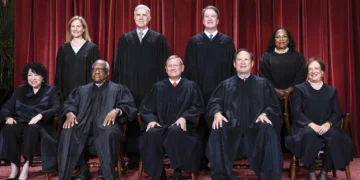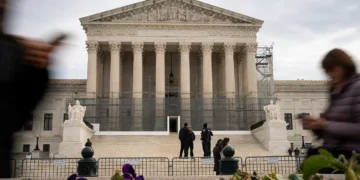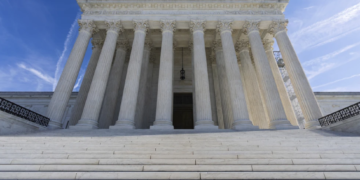Feb 28, 2025 Story by: Editor
During a hearing on Wednesday, US Supreme Court justices signaled that they may side with a woman who claims she faced workplace discrimination because she is heterosexual.
Marlean Ames, who worked for the Ohio Department of Youth Services for over two decades, alleges that she was overlooked for a promotion and later demoted due to her sexual orientation. According to her lawsuit, both positions were given to gay colleagues.
Ohio state officials have denied the allegations, and Ames has so far been unsuccessful in court.
During oral arguments before the Supreme Court—which has a 6-3 conservative majority—justices across the ideological spectrum appeared to show support for Ames’s case.
A 1964 US law prohibits workplace discrimination, and in 2020, the Supreme Court ruled that these protections extend to sexual orientation. However, lower courts have dismissed Ames’s lawsuit.
Legal precedent in certain states, including Ohio, requires that majority group members—such as heterosexual individuals or white people—provide a higher standard of evidence when making discrimination claims.
In such cases, often referred to as “reverse discrimination” lawsuits, plaintiffs must establish additional “background circumstances,” such as proof that LGBTQ individuals influenced the employment decisions or a pattern of discrimination.
According to the lawsuit, Ames had received positive performance reviews, yet in 2019, she and two other heterosexual employees were passed over for a promotion that was ultimately given to a lesbian candidate. Later, she was demoted, and her position was filled by a gay man.
A lower court previously ruled that Ames failed to establish a pattern of discrimination or the required “background circumstances.” It also determined that managers at the youth services department had “legitimate, nondiscriminatory business reasons” for their choices.
During Wednesday’s hearing, conservative Justice Brett Kavanaugh stated: “Discrimination on the basis of sexual orientation, whether you are gay or straight, is prohibited. The rules are the same whichever way it goes.”
Another conservative justice, Amy Coney Barrett, emphasized that “it doesn’t matter if she was gay or whether she was straight,” asserting that the legal burden should be applied equally.
Liberal justices also appeared to express concern. Justice Neil Gorsuch suggested that allowing Ames’s lawsuit to move forward could be a “wise course.”
Justice Sonia Sotomayor, while discussing the details of the case, remarked, “something’s suspicious,” adding that it “certainly can give rise to an inference of discrimination.”
Representing Ohio officials in court was state Solicitor General T. Elliot Gaiser, a former attorney for Donald Trump. Gaiser argued that “everyone here agrees that everyone should be treated equally,” but maintained that the officials involved in the hiring decisions were unaware of Ames’s sexual orientation and therefore could not have used it as a basis for discrimination.
State attorneys further contended that the decision-makers were heterosexual and had legitimate concerns regarding Ames’s vision for the youth services department.
The Supreme Court may instruct lower courts to re-evaluate the case, potentially allowing Ames’s lawsuit to proceed.
Source: BBC
















